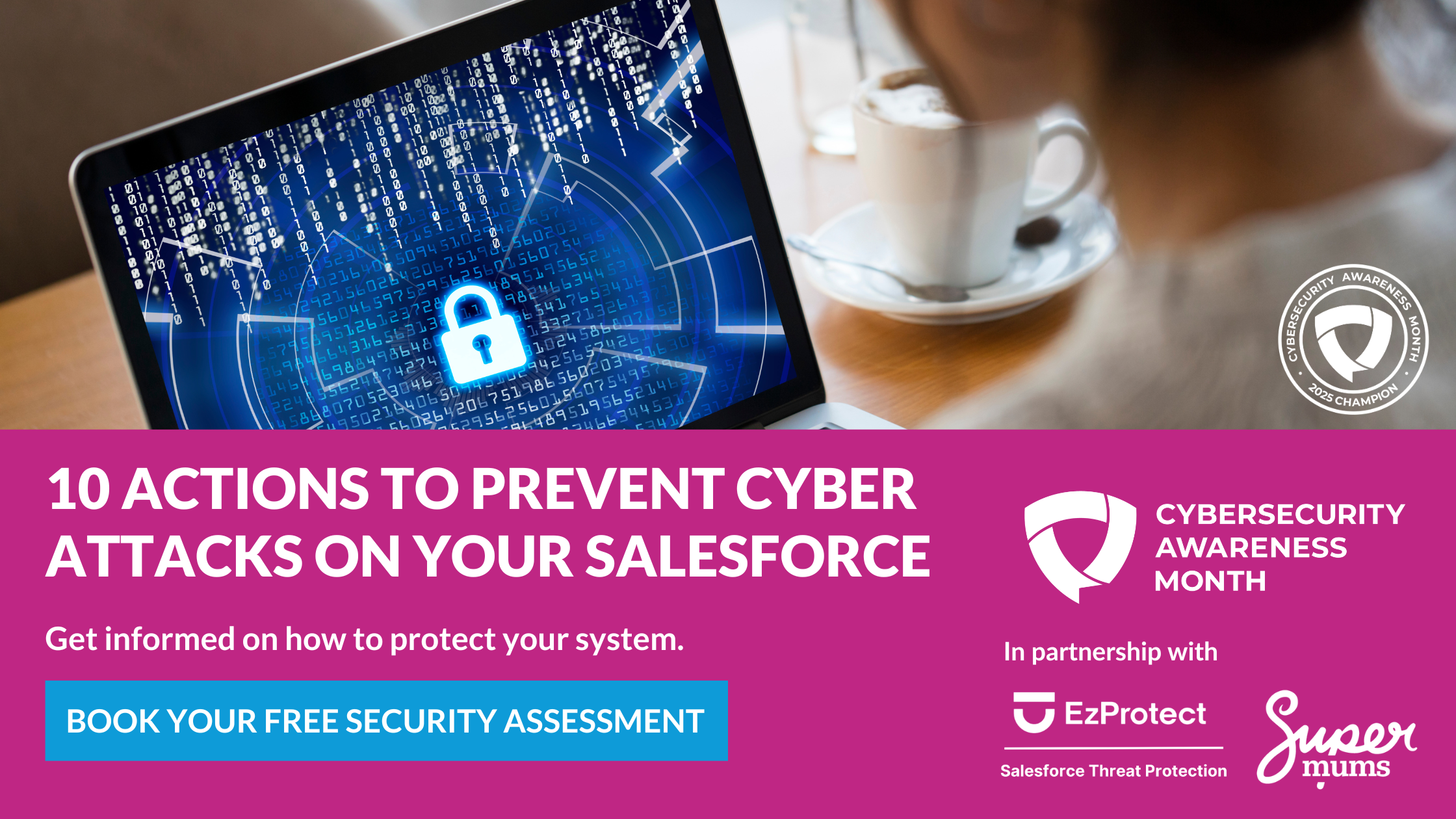8 steps to Prevent Burnout and maintain Balance and Wellbeing
By Heather Black

Over the next four weeks we are talking about burnout, anxiety, imposter syndrome and overwhelm, and sharing strategies on how to maintain positive mental health & wellebing whilst launching and building your career alongside juggling personal and family life.
We are sharing strategies on:
- Part 1: How to prevent burn-out
- Part 2: How to reduce anxiety
- Part 3: How to overcome imposter syndrome
- Part 4: How to manage overwhelm
If you are returning to the workplace after a career break, launching into a new career or stepping into a new job role / promotion, you might experience anxiety or imposter syndrome.
Sign up to our Weekly Career Boost Bulletin to stay up to date and get notified when each of the strategies are shared.
Also, get 5% off any of our Salesforce courses when you subscribe to our newsletter.

If you are finding yourself working long hours, you are struggling to manage your own time or you are taking on too much as you are not able to say no to things, then you might be feeling a sense of overwhelm or burn-out.
In today’s world we can juggle a lot and we have to learn to self-manage our mind, our time, our ambitions and our boundaries. Working on our mental health and feeling in control of our life is really important to maintain momentum.
At Supermums, we are passionate about the power of coaching to help improve mindset and mental health. We have a team of career coaches that work with people launching and furthering their Salesforce career as they go through these emotional challenges.
If you are based in the UK the coaching support could be funded subject to eligibility.
Find out more about one to one coaching support here or join our Ambitious Women Mindset Summit to learn some coaching tools and techniques for free.



Marie Hannigan
Kelly Nash
Christina McLoughlin
How to Prevent Burnout
With awareness and proactive measures, it’s possible to prevent burnout and safeguard your mental and physical well-being. In our blog this week, we’ll explore what burnout is, how to diagnose it, why it happens, and most importantly, provide actionable steps to prevent it.
What is Burnout?
Burnout isn’t simply feeling tired or stressed; it’s a state of chronic physical and emotional exhaustion caused by prolonged stress or overwork. It’s characterized by feelings of detachment, cynicism, and a sense of ineffectiveness. Burnout doesn’t develop overnight; it’s a gradual process that can sneak up on you if left unchecked.
Diagnosing Burnout:
Recognizing the signs of burnout is crucial for addressing it effectively. Some common symptoms include:
- Persistent fatigue and exhaustion, even after adequate rest.
- Decreased motivation and productivity.
- Increased cynicism or detachment from work or personal responsibilities.
- Physical symptoms such as headaches, muscle tension, or gastrointestinal issues.
- Difficulty concentrating or making decisions.
- Loss of enjoyment in activities once found pleasurable.
Why Does Burnout Happen?
Burnout typically occurs when there’s an imbalance between the demands placed on an individual and their ability to cope with those demands. Several factors contribute to burnout, including:
- Workload: Overwhelming workloads, tight deadlines, and unrealistic expectations can all contribute to burnout.
- Lack of Control: Feeling powerless or lacking control over one’s work environment can lead to feelings of frustration and burnout.
- Work Environment: Toxic work cultures, poor management, and interpersonal conflicts can exacerbate feelings of stress and contribute to burnout.
- Personal Factors: Neglecting self-care, poor work-life balance, and perfectionistic tendencies can also increase the risk of burnout.
Preventing Burnout: Actionable Steps
Now that we understand what burnout is and why it happens, let’s explore some practical strategies to prevent it:
- Set Boundaries: Establish clear boundaries between work and personal life. Designate specific times for work and leisure activities, and stick to them. Avoid checking work emails or taking calls outside of designated hours.
- Prioritize Self-Care: Make self-care a priority. This includes getting adequate sleep, eating a balanced diet, exercising regularly, and engaging in activities that bring you joy and relaxation.
- Learn to Say No: Don’t be afraid to say no to additional responsibilities or commitments that may contribute to your workload. Know your limits and prioritize tasks that are essential and meaningful.
- Practice Mindfulness: Incorporate mindfulness techniques into your daily routine to help reduce stress and increase resilience. This can include meditation, deep breathing exercises, or simply taking short breaks to clear your mind.
- Seek Support: Don’t hesitate to reach out for support from friends, family, or colleagues. Talking about your feelings and experiences can help alleviate stress and provide valuable perspective.
- Set Realistic Goals: Break down larger tasks into smaller, manageable goals. Set realistic expectations for yourself and celebrate your achievements along the way.
- Take Regular Breaks: Schedule regular breaks throughout the day to rest and recharge. Step away from your work environment, even if it’s just for a few minutes, to clear your mind and prevent burnout.
- Foster Positive Relationships: Cultivate supportive relationships with colleagues and peers. Having a strong support system can provide encouragement, guidance, and a sense of camaraderie during challenging times.
What should YOU do next?
Preventing burnout requires a proactive approach to self-care and stress management. By recognizing the signs of burnout, understanding its underlying causes, and implementing practical strategies to prevent it, you can safeguard your well-being and thrive in both your personal and professional life. Remember, prioritizing your mental and physical health is not a luxury; it’s a necessity. Take the time to invest in yourself, and you’ll reap the rewards of a balanced and fulfilling life..
Learn Coaching Tools
Join us for our Ambitious Women Mindset Summit on DATE to learn different coaching tools and techniques to improve your mindset.
Talk to us
Find out more about career coaching, and how it can support you by booking in a free consultation with our career coaches at Supermums.
Written By:
Subscribe To Our Weekly Top Tip Bulletin
Get Updates And Learn From The Best













